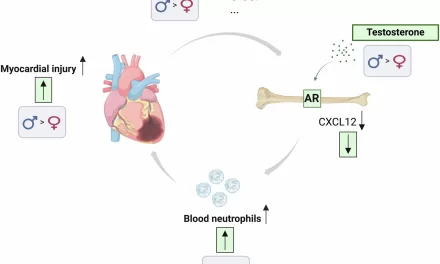A rare red meat allergy, known as alpha-gal syndrome, traditionally associated with the bite of the lone star tick, may be caused by a wider range of tick species than previously understood, according to a recent report. This discovery raises concerns about the potential spread of the condition across the United States.
Alpha-gal syndrome triggers a delayed allergic reaction to alpha-gal, a sugar molecule found in most mammals except primates. Symptoms can range from hives and stomach pain to life-threatening anaphylactic shock.
“Alpha-gal syndrome is relatively rare, but those who have it can have a full-on anaphylactic shock,” explained Douglas Norris, a professor of molecular microbiology and immunology at the Johns Hopkins Bloomberg School of Public Health, speaking to NBC News.
The U.S. Centers for Disease Control and Prevention (CDC) estimates that nearly 450,000 Americans are affected by this condition. Historically, the lone star tick, prevalent in the Southeast and lower Midwest, has been identified as the primary culprit.
However, recent case reports from Maine and Washington state have challenged this understanding. Two women, residing in regions where lone star ticks are uncommon, developed alpha-gal syndrome after tick bites. This suggests that other tick species, including the black-legged tick (deer tick) and the western black-legged tick, known carriers of Lyme disease, may also transmit the allergy.
“We do believe the lone star tick is still responsible for most of the cases of alpha-gal syndrome in the U.S.,” clarified Dr. Johanna Salzer, a veterinary medical officer and epidemiologist with the CDC’s Division of Vector-Borne Diseases, in the same report.
In one case, a 61-year-old Washington woman experienced anaphylactic shock after consuming beef tacos, nearly a month after a tick bite. A 45-year-old woman in Maine reported stomach issues following red meat consumption, nine days after removing a deer tick. Both women tested positive for alpha-gal antibodies.
“It’s unique because it’s a delayed reaction, roughly two to eight hours, so you can have a hard time knowing the trigger,” Salzer noted, contrasting it with immediate reactions seen in other IgE allergies like peanut or shellfish allergies.
Symptoms of alpha-gal syndrome can include hives, stomach pain, vomiting, and swelling of the tongue or throat. The condition was first identified in 2009, revealing an immune response to the alpha-gal sugar found in most nonprimate mammals.
“Tick populations in general, and particularly with lone star ticks, are exploding all over the United States,” warned Matthew Aliota, an associate professor of veterinary and biomedical sciences at the University of Minnesota. “Lone star ticks are moving into bigger geographic areas, and that range is continuing to expand with climate change.”
Experts emphasize the importance of tick bite prevention. Recommendations include using insect repellent containing DEET, wearing long clothing, and conducting thorough tick checks after spending time outdoors in tall grass or wooded areas.
“The most important thing is preventing the tick bite altogether,” Salzer concluded.
For further information on alpha-gal syndrome symptoms and causes, visit the Mayo Clinic.
Disclaimer: This news article is for informational purposes only and should not be considered medical advice. Consult with a healthcare professional for1 diagnosis and treatment of any medical condition.2












